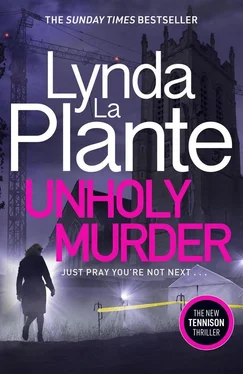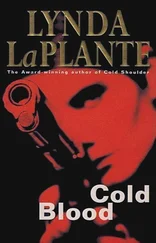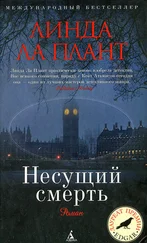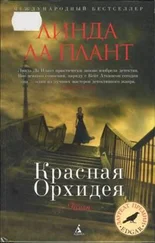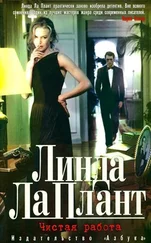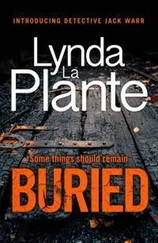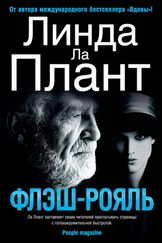‘So how does it work as a poison?’ Jane asked.
‘The botanist said foxglove contains digoxin, which is commonly used as a drug to treat cardiac arrhythmia because it slows the heart rate down. Large doses can cause symptoms like vomiting, giddiness and unconsciousness. In excess, it slows the heart rate so much the brain becomes starved of oxygen; the body’s reflex response is to try and increase the heart rate, which can result in a heart attack and death.’
‘So you’d have to have a good knowledge of plants to know how to use it?’ Jane asked, thinking of Mother Adele.
‘I’d say so. The botanist said there have been many cases of accidental poisoning due to foxglove penetrating the skin when handled without gloves. People have even unwittingly made tea from the leaves and poisoned themselves. It has also been used to murder people. The botanist told me of a case where a German doctor killed his girlfriend with it. Under the guise of conducting a physical examination, he placed digoxin on his glove and administered the poison rectally...’
Jane winced at the thought. ‘Yes, thank you, Lloyd, I get your drift. I’ll need to get Sam Pullen’s opinion on the poisoning angle.’
‘I already have. She said it’s most likely the seeds were put in Sister Melissa’s food or a hot drink at the last meal she had before she was killed.’
‘Julie Dorton said Sister Melissa was very emotional and incoherent the last night she saw her.’
‘That makes sense. Pullen said the poison could have a delayed reaction of up to eight hours. She also suggested it was possible, when Sister Melissa was first strangled, that the fear factor caused her heart rate to accelerate so much she became unconscious.’
‘So whoever strangled Sister Melissa might have thought she was dead and put her in the coffin,’ Jane suggested.
‘That’s exactly what Pullen suggested. She’s going to get a specialist to examine the heart for any signs of damage due to sudden cardiac failure. I’ve got to say, whoever had it in for Sister Melissa was determined to kill her one way or the other.’
‘Now you’ve told me this, it seems likely the Mother Superior was involved. We also found out she made herbal remedies from garden plants, so she must have known what was and wasn’t poisonous.’
‘Have you been able to trace her?’ Lloyd asked.
‘Yes, to a grave in Hackney. She died a few years ago.’
‘So if others were involved, they could put the blame on her.’
Jane sighed. ‘I know. This investigation gets more and more complicated by the minute. Thanks for calling.’
‘I’ll say a prayer and hope for some divine intervention,’ he joked.
‘Worth a try,’ she said, putting the phone down.
After Boon had left for his date, it took Jane another hour to finish the report. Having read it twice, she was satisfied everything of evidential value was in it. She was leaning towards Barnes’s view that Meade had killed Sister Melissa, but it was clear others had to be involved in the cover-up or at least knew the truth of what had happened. She was still suspicious of Thomas Durham and Lee Holland because they’d lied to her, but she was no closer to finding out why.
She was just about to leave when the indexer’s phone started ringing.
‘Orpington incident room, how can I help you?’
‘I’d like to speak with Detective Sergeant Tennison, please.’
She recognised the Canadian voice. ‘Hi, Inspector Tremblay, it’s Jane speaking.’
‘I’m with Melissa’s parents, Lawrence and Fiona Bailey. They showed me her birth certificate and letters she wrote home when she was at the convent. I’ve told them about your investigation and the likelihood the victim is Melissa. Mr Bailey would like to speak to you,’ Tremblay said.
‘Of course,’ she replied.
These were the conversations Jane dreaded. It was never easy talking to a parent who had lost a child, and even harder when they had been murdered. Jane knew the Baileys must have suffered years of torment wondering what had happened to Melissa. Their last physical contact would have been the day they lovingly embraced her, aged eighteen, as she left home to devote her life to God. Then, nine years later, she would go silent and they would never hear from their daughter again. Not knowing where Melissa was, or how she was being treated, must have driven them to the depths of despair. All they would have wanted was to know Melissa was alive, safe and well, but now their worst fears had become a reality.
‘Thank you for finding us, detective. My wife and I have always dreaded this day would come. I have to ask, but are you sure it’s Melissa?’ Lawrence asked.
‘I’m sorry, but all the evidence points towards Melissa being our victim. We recovered a cross engraved with her initials and the date she took her vows. Sister Julie Dorton, a good friend of Melissa’s who was also at the convent, has identified it as being hers.’
‘Melissa often spoke about her in her letters. She said Julie always cheered her up when she felt homesick.’
‘How often did Melissa write to you?’ Jane asked.
‘Once a month, which was what she was allowed under the convent rules. There were a couple of times we didn’t hear from her for two or three months, but it didn’t worry us at the time.’
‘May I ask why not?’
‘She did say in a letter that one punishment for breaking the rules was the withdrawal of writing privileges, so we assumed that was why there were sometimes gaps between her letters. Melissa could be a bit hot-headed and impulsive. She often got in trouble at junior high school for speaking her mind. In fact, I think she spent more time in detention than she did in the classroom. Then when she was seventeen and decided she wanted to be a nun she calmed down.’
Jane recalled Julie Dorton mentioning the sister’s letters were checked and edited by the Mother Superior, thus making it impossible to write anything negative about the convent or life there to family or friends. Although Jane thought she knew what Lawrence’s answer was going to be, she still had to ask her next question.
‘Did Melissa ever write about wanting to leave the Sisterhood or anything that was troubling her?’
‘No. She’d tell us about the work she did in the convent, the orphaned children and how much she loved them. She often said she missed us and hoped if ever we were visiting the UK we could come to the convent and see her. Regrettably we never got the opportunity,’ he added, his voice tinged with sadness.
‘Can you recall when Melissa last wrote to you?’
He took a deep breath before continuing. ‘The fifth of August 1962. The day of her twenty-seventh birthday. She said Julie was baking a cake for her.’ His voice started to tremble. ‘We became concerned when we hadn’t heard from Melissa for nearly six months. I asked the advice of a Canadian detective I knew here in Kingston. He contacted Bromley police on our behalf about our concerns.’
‘Do you know the name of the officer he spoke to?’
‘Detective Jim Harris. I spoke with him a couple of times myself.’
‘Did he carry out an investigation?’
‘He told me he visited the convent and spoke with the Mother Superior who informed him Melissa had left in August as she no longer wished to be a sister. He also said the bishop had granted her a dispensation, allowing her to leave.’
‘Do you know if Detective Harris recorded Melissa as a missing person?’ Jane asked.
‘He said he would, and he’d also make some local inquiries, but beyond that there wasn’t a lot more he could do. At the time I thought Melissa might have been embarrassed about telling us she’d left the sisterhood. I thought she would eventually make contact with us... but now I know why she didn’t.’
Читать дальше
